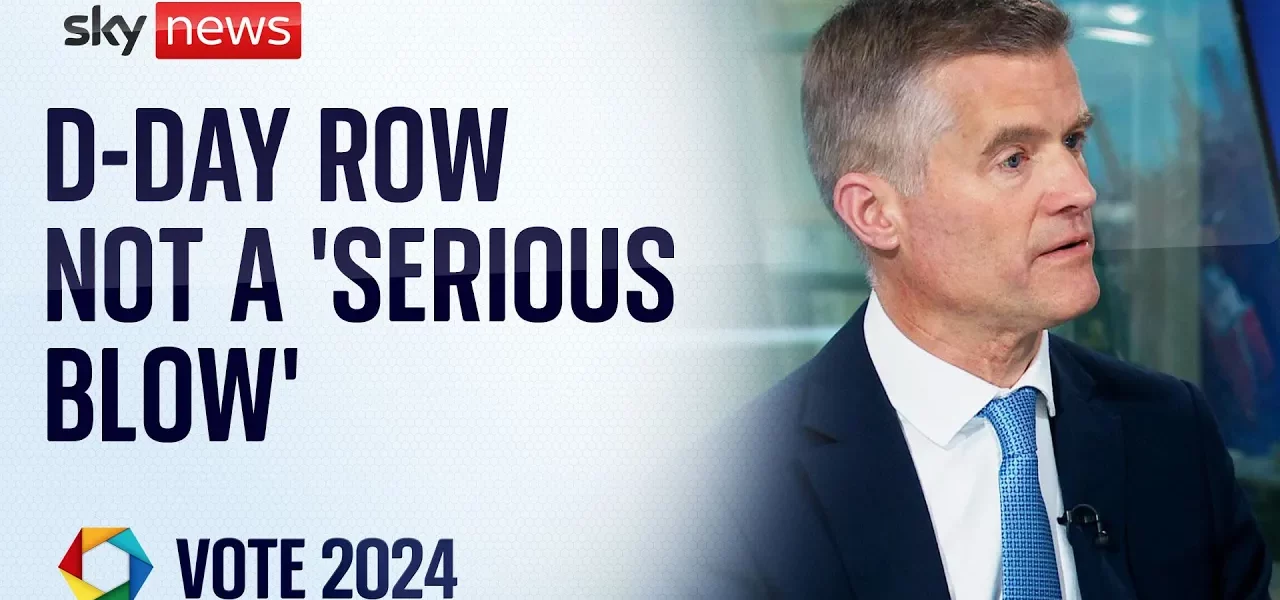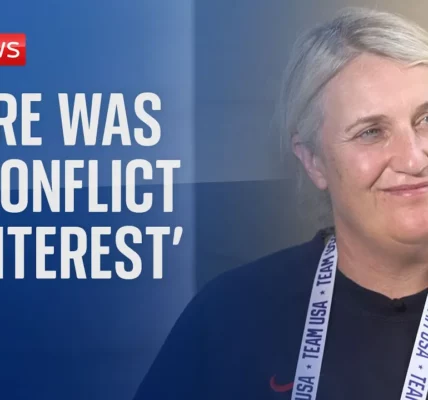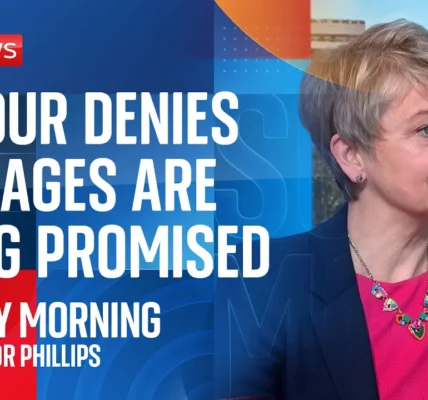Mark Harper Discusses Prime Minister’s Departure from Veteran Event

Join us as Transport Secretary Mark Harper shares insights on the Prime Minister’s controversial early departure from a veteran event, discussing the implications for veterans’ affairs and the upcoming election campaign.
Introduction
In a recent interview, Transport Secretary Mark Harper addressed the backlash faced by Prime Minister regarding his early exit from a significant event honoring veterans. This discussion not only highlights the Prime Minister’s actions but also sheds light on the government’s ongoing commitment to veterans and the broader implications for the Conservative Party’s electoral strategy. With an emphasis on accountability and a focus on veteran issues, Harper’s remarks provide clarity on the government’s intentions and future plans.
The Prime Minister’s Early Departure: A Mistake Acknowledged
During the interview, Mark Harper reinforced the Prime Minister’s admission that leaving the D-Day commemorative event early was a mistake. The Prime Minister himself publicly acknowledged this error, stating that it was not only a misstep on his part but also expressed regret for any hurt it may have caused among veterans and the public.
Apology and Accountability
The Prime Minister’s transparency in admitting this mistake was praised by Harper, who emphasized that taking responsibility is crucial in leadership. He noted:
- The importance of acknowledging mistakes in public life.
- The Prime Minister’s direct apology to both the nation and veterans.
- The need for leaders to connect with and respect the sentiments of those they serve.
Commitment to Veterans
Despite the controversy, Harper highlighted the government’s ongoing efforts to support veterans. He pointed out several initiatives that demonstrate the Conservative Party’s commitment to veterans’ welfare:
Government Initiatives
- Establishment of a dedicated Veterans Minister to focus on issues affecting veterans.
- Creation of a separate Office for Veterans Affairs to streamline support services.
- Strengthening the Military Covenant, ensuring veterans receive the care and recognition they deserve.
Future Plans
Harper also mentioned forthcoming commitments that aim to enshrine veterans’ rights in law, emphasizing that actions speak louder than words when it comes to government accountability.
Public Perception and Trust
When questioned about whether the Prime Minister is out of touch with public sentiment regarding veterans, Harper defended the Prime Minister’s actions and intentions. He acknowledged the emotional impact of the D-Day events on the Prime Minister, referencing his interactions with veterans that have deeply affected him.
Understanding Public Sentiment
Harper argued that the Prime Minister’s decision to apologize reflects his understanding of public feelings towards veterans:
- The Prime Minister has been engaging directly with veterans and their families.
- His actions demonstrate a commitment to honoring their service.
- Listening to veterans’ experiences has influenced the government’s approach to veterans’ affairs.
Strategic Implications for the Conservative Campaign
As the interview progressed, the conversation shifted towards the implications of this controversy on the Conservative Party’s election campaign. Harper remained optimistic, stating that this incident would not define the party’s chances in the upcoming elections.
Election Strategy
He outlined key points of the Conservative election strategy that focus on:
- Tax policies aimed at reducing the financial burden on working individuals.
- Commitments to national defense and security.
- Clear contrasts with opposition policies, particularly concerning veterans and public services.
Environmental Policies and ULEZ Expansion
The discussion also touched on environmental policies, specifically regarding the Ultra Low Emission Zone (ULEZ) in London. Harper clarified that the Conservative Party does not oppose environmental regulations but aims to roll back the recent expansion of ULEZ to outer London, citing concerns over its impact on everyday commuters.
Balancing Environmental Concerns with Public Needs
Harper argued that the expansion of ULEZ was not aligned with improving air quality and instead served as a tax on drivers, particularly affecting those who have no say in the matter:
- Public service workers and shift workers are particularly impacted.
- The previous mayoral election results indicate mixed public sentiment towards ULEZ.
- The need for a balanced approach that considers both environmental goals and the public’s needs.
Conclusion
In summary, Mark Harper’s insights provide a comprehensive view of the government’s stance on veterans’ issues and the implications of recent controversies for the Conservative Party’s electoral strategy. While mistakes were made, the emphasis on accountability, commitment to veterans, and a clear election strategy reflect a party poised to address the challenges ahead. As the election approaches, it will be crucial for the Conservative Party to communicate their plans effectively and engage meaningfully with the public. For those interested in further discussions on veterans’ affairs and political strategies, stay tuned for more updates and analysis.
“`




